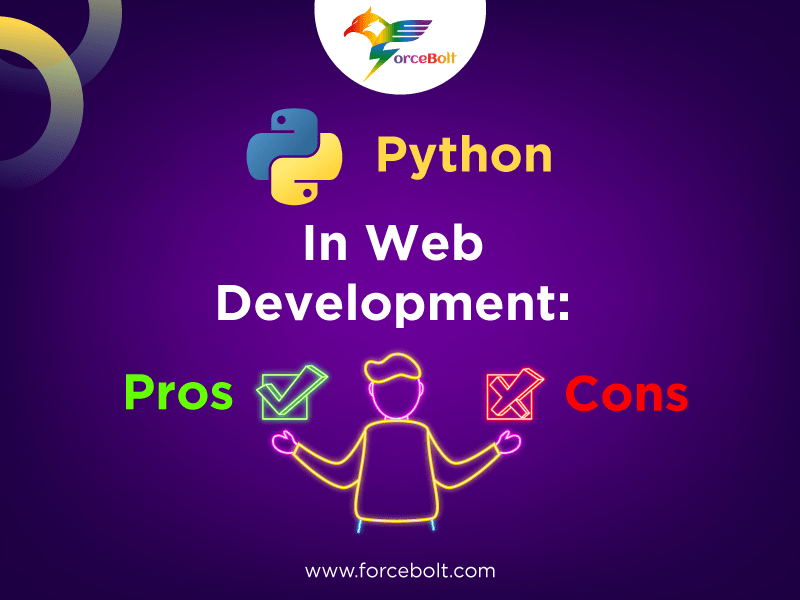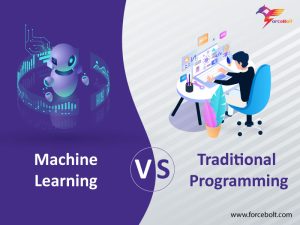Sharing is caring!
Python was first released in 1991 and later became an open-source programming language. Python is chosen as a programming language over traditional programming languages like Java and C++. It is also known as one of the most popular programming languages globally in the programming world.
This is due to Python’s dynamic, flexible, and highly capable nature. It is beneficial for complex application development and scripting or “glue code” for connecting components together.
No wonder Python app development has revolutionized the entire mobile and web application development approach to a whole new level. And when you hire the top-notch Python development company, you get access to out-of-the-box web solutions that would streamline your business processes like never before.
The popularity of Python has arisen due to the benefits offered by it. The benefits are simplicity, scalability, and the ability to attract big companies like Instagram, Dropbox, and Spotify. There are many advantages of using Python for web development, and so are the pitfalls. So, let us discuss these pros and cons, one by one.
What are the Pros and Cons of Using Python In Web Development?
Pros Of Using Python In Web Development
1. Easy to Use and Read Language
It is easy to learn a language with simple syntax, and it is similar to the English language that we use in our daily lives. The new programmers can join the community faster with a lesser learning curve. Python is easy to read, so the developers do not have difficulty understanding other programmers’ code. So this increases the efficiency of communication between programmers. Moreover, Python libraries (Matplotlib, Numpy ) are used by web development companies to visualize data and create clear and easy-to-understand reports.
2. Less Effort for Asynchronous Coding
Asynchronous coding patterns help to solve many web development problems. No stalemate, research contention, or other baffling issues arise with Python programming, and not much endeavor is required in writing and maintaining asynchronous coding using Python. Since each code unit runs separately, problems get handled faster.
3. Highly Scalable Language
Python is a highly scalable language, and many enterprises tend to use it. The application stays stable with an increase in the number of users with no effect on engagement rate or lags. Maintaining the code efficiently without incurring additional costs or requiring additional time is possible.
4. Better Programming Approach
The programming approach in Python is less limited compared to languages like Java. Python supports various programming styles, including procedural, functional, and object-oriented. So, it is conveniently used by startups who often need to change their approach. Moreover, quick prototyping and iterations are suitable for startups for faster time to market, which means a competitive advantage. Furthermore, simplified Object-Oriented Programming with Python leads to lesser cost and lesser time to develop. Finally, Python has rich libraries with pre-written code, saving developers time.
5. Usage in Scientific Applications
Python comes with various libraries and packages for writing Scientific Applications and toolkits. The more commonly used ones are NumPy, SciPy, Pandas, Natural Language Toolkit, etc.
6. Usage in Machine Learning and AI
This is the age of Machine Learning (ML) and AI. Python comes with efficient ML packages, visualization tools, and data analysis, and other features. It is believed to be the top language for ML and AI-based projects.
7. Application Scripting and Software Testing
Python is suitable for Application Scripting with strong integration with C, C++, and Java. It is used to customize large apps and build extensions for them. Moreover, it is used in automation due to its lower learning curve and for developers with lower technical background. Python also has easy-to-use unit-testing frameworks, and it helps in geolocation testing for mobile applications.
8. Portability and Interactivity
The interactivity and portability of Python result in its good enough capabilities for faster prototyping and dynamic semantics. It can be embedded in other apps, even those written with a different programming language. Also, it helps to connect various components, and so it is often termed glue language.
Cons Of Using Python In Web Development
1. Simplicity
Simplicity is an advantage and a drawback for Python. Python developers use simple syntax, and hence switching to complex programming languages like Java is not easy for them. So, the developers have the daunting task of switching to a new language from Python with late-binding models and extensive libraries.
2. Fewer Expert Developers
When you develop apps, experienced developers are the need of the hour. But, not many developers have proficiency in Python when compared with Java.
3. Speed Limitations
Python, an interpreted scripting language, is slower than languages such as C/C++ or Java due to various methods to translate code. However, some benchmarks based on Python work faster than C and C++. Some issues related to speed are now solved, so Python remains the top choice of web development teams.
4. Not Used Much in Mobile App Development
Python is good enough for mobile app development. But companies prefer to use native development or React Native development. It is challenging to recruit Python developers with experience and skills in mobile App Development.
5. Design Restrictions
Python is dynamically typed and has a restricted design because Python executes specific tasks during app runtime, which gets completed when you use a statically typed language. When the design is loaded with elements, the program stops and prevents smooth operations. The design looks less polished since concurrency and parallelism are not correctly used in Python.
6. Bad for Memory-Intensive Task
Python has flexible data types, resulting in high memory consumption and lacking suitability for doing memory-intensive tasks.
Conclusion
Python is a programming language that is flexible, easy to scale, able to attract big companies, and easy to learn. Python supports various programming styles, including procedural, functional, and object-oriented. So, startups with limited resources searching for reduced risks often tend to use Python with a need to change their approach at any given point in time. Moreover, it offers quick prototyping and iterations, so startups get the advantage of faster time to market, which provides them with a competitive advantage.
Need help with your web development project? You can undoubtedly rely upon us to meet all your development needs. Contact ForceBolt, recognized as the leading Python development company, offers high-quality Python development services as we have best-in-class Python developers who possess rich years of experience in game development, web application development, or Python-based IoT app development.

Abhishek Singh
Full Stack Technical Lead
A highly motivated Senior Full Stack Developer who is self-driven and actively looks for ways to contribute to the team. He possesses rich expertise and deep knowledge about a good software development process that includes documentation, testing, documentation, and collaboration. With solid communications and reasoning skills, he delivers high performance and quality in his projects. He is always open to assist other teams in understanding project requirements so that collaboration can happen in the best possible ways in an environment conducive to the business.













